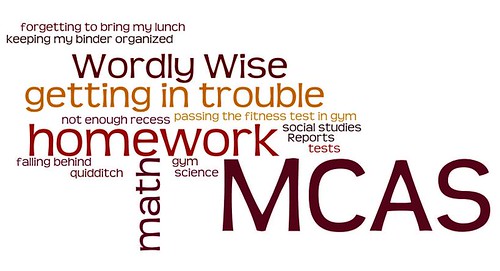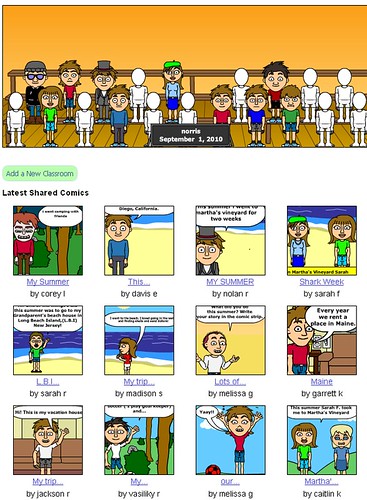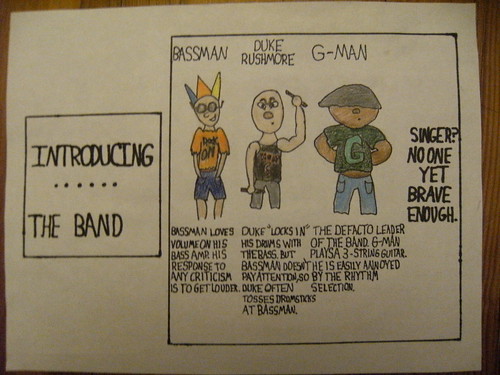Like most schools in Massachusetts, where there is a new law around bullying issues, we spent much of our first day back in professional development sessions centered around bullying and cyberbulling. Under our new state law, there will be detailed reporting procedures, a trail of action taken by administrators, and introduction of a bullying curriculum. It’s an important issue and we need more discussions. But I wonder about the message that was sent yesterday to the elementary teachers by our first speaker.
Cindy Boyle, who is a community educator with the regional District Attorney’s team, was energetic, engaging, funny and clearly has talked a lot and worked a lot with kids. She cares about young people. That was evident. She was also upfront, letting us know that her perspective on the use of technology to engage in bullying behavior (through messaging, comments, etc.) is seen through the prism of the justice system. She urged us to see the issue through the eyes of an educator, too.
She also made it clear that the fears over predators scouring the Internet for victims is so statistically rare, and happens in certain situations, that those fears are not what should be worrying us. It’s the regular kids that need to be in our field of vision. The kids with a cell phone, or a computer.
Then, she launched into a presentation about how prevalent technology is in the lives of young people, how often clueless many young people are about their “digital footprints,” how she works in small groups to help youths see what digital detritus they leave behind, and how technology can be used to decrease the social interactions of people to such a degree that bullying can take place easily enough. She also took gaming to task for its use of cheating by sharing codes, violence in first person games and anti-social behaviors of users.
A few things she presented were not quite correct. She used a recent Kaiser Family study in which young people were show on average to be consuming media about 7 hours a day. Boyle told us that the study showed that kids use the Internet for 7 hours a day. There were some gasps around me. And she told us that when you load a video to YouTube, anyone anywhere can write a comment saying whatever they want (she had a slide with some vicious comments to demonstrate her point). Another teacher questioned her on this, and she started to backtrack about privacy controls. Just to be clear: you can shut off all comments, all video responses, all ratings when you load your video, just to be clear. And the news articles she shared made their point dramatically, all right, with reports of teachers being penalized and students being reprimanded, etc.
I imagine that the majority of my colleagues probably just shut the door on the possibilities of using web-based technology with that one single presentation because even though Cindy Boyle made it clear that education is a key component to stopping bullying online, I imagine a lot of teachers thinking the easiest way is to not even bring technology into the classroom.
Although she had asked us to view the talk through our own eyes, I think the fears that she put in place may have overwhelmed any considerations of possibilities for Internet-based work, including writing for an audience, connecting with global partners, composing in multiple media, etc. Those positive learning elements seemed diminished in the shadow of worry that she cast over us.
Peace (in the balance),
Kevin




